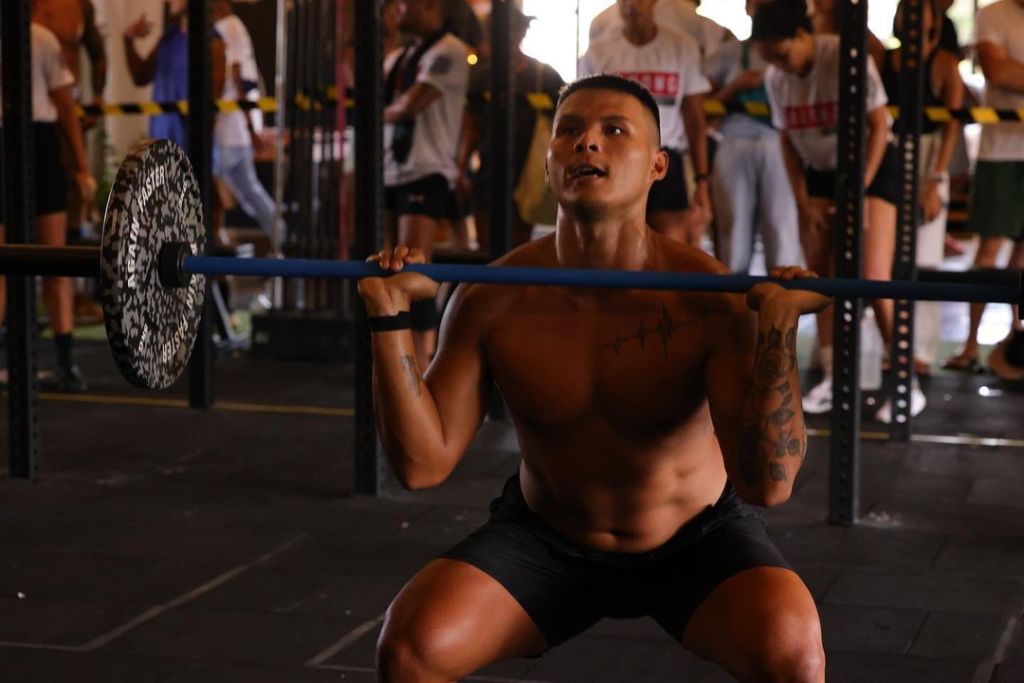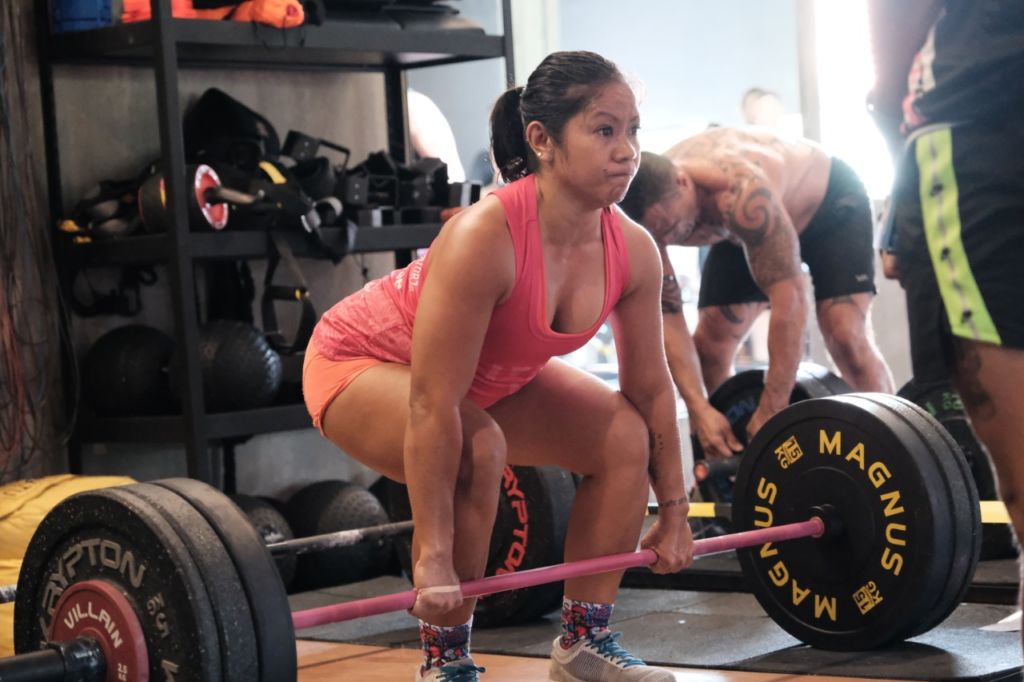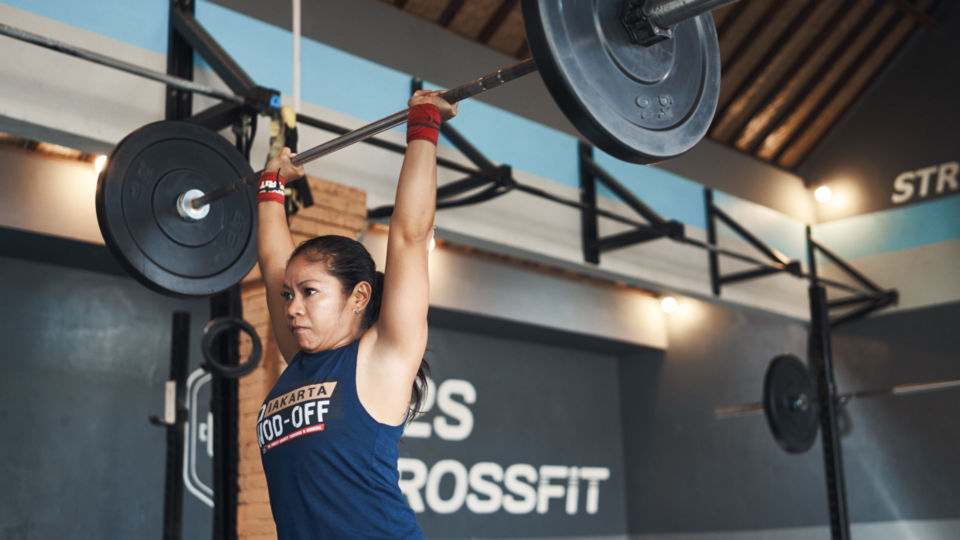The fitness industry is increasingly an essential part of Bali. After all, scenes of beautiful people tirelessly sculpting their beach bodies by lifting or taking CrossFit classes, eating healthy food at some of the top brunch spots, and then partying at the finest beach clubs encompasses many people’s image of the island (or at least their Instagram feeds).
And in the past few years, the fitness industry on the Island of Gods – especially in Canggu, where it’s plain as day that beauty standards are high – has been booming.
That being said, one cannot help but notice that most of the prominent trainers are – let’s all be honest – foreigners.
Not that there is anything inherently wrong with that. However, when the phenomenon impacts how local trainers are treated and creates a salary gap between them and their foreign counterparts, then the issue is absolutely worth talking about, for the benefit of the island’s fitness scene as a whole.
Thirty-year-old Denis Christian is among the few Indonesian fitness coaches who have successfully established their names amongst the sea of foreign trainers on the island.
Speaking to Coconuts Bali recently, Denis said one of the irksome things he faces as a coach is client tardiness. And when they do come late, the level of regard he is given is different than with foreign trainers.
“I remain respectful [in reprimanding clients for being late]. I ask them to please come earlier or on time or I won’t let them in my class. This is mostly for safety reasons, because they could miss the warm-up and disrupt the flow of the class,” he said.
“There’s only one problem: local trainers’ reprimands go unheeded. [Clients are also late] to foreign trainers’ classes, but they are more apologetic towards foreign trainers. It’s about respect. It’s a small percentage, but it happens.”
While Denis is a certified fitness instructor with nine years of experience – he is also training to be a pilates master – he said that he once almost got paid much less than less-qualified foreign colleagues and had to fight for the salary he deserved.
“I had to stand my ground on getting equal pay,” he said.

Christina Paulin, who is a certified CrossFit coach measuring 150 centimeters tall and weighing 55 kilograms, said that she has had to do a lot more to stand out in the industry. It should be noted that “a lot” here has nothing to do with her strength – she had just finished doing sets of pull ups when we approached her.
Paulin is currently able to deadlift almost triple her body weight, as well as squat double her body weight. Still, she lamented how sometimes people who attend her classes look down on her.
“Being a tiny Indonesian female who coaches Crossfit, some of the big gym dudes would underestimate me,” she said.
She recalled an incident in which two young Westerner “gym bros” attended her class. Noticing their poor form during squats, she advised them to lower the weights and focus on correcting their movements.
Without uttering a word, they just left her class.

Pandemic bliss
Perhaps one of the silver linings of the pandemic – for the locals who work as fitness instructors at least – was that the number of job opportunities opened up as many foreign coaches had to leave Indonesia over visa issues or because fitness businesses were struggling.
“Well, they (fitness businesses) had no other option,” Paulin said, commenting on the shift in the past couple of years.
“They also want to have a new domestic market consisting of local clients who are glad to be able to communicate with coaches who understand their language,” she added.
Denis agreed.
“To hire local trainers, the gym doesn’t need to worry about providing KITAS (temporary stay permit). And gym owners are starting to realize that there are good local trainers on the island, so why would they hire someone from overseas and spend extra money for them?” he said.
Denis, who was working full-time in Hong Kong in 2020, was planning to have a six-month break in Bali but ended up stuck on the island due to the pandemic. A former employer in Jakarta later told him that he was opening a CrossFit gym in Bali but the original trainer – a foreigner – was not able to travel to the island due to restrictions and offered the vacancy to him.
“I always wanted to live in Bali, I just didn’t expect it to be in 2020,” he said.
For Paulin, who almost missed out on the chance to be a CrossFit trainer, the pandemic allowed her to enjoy her new career and she is grateful for regular clients who appreciate her group classes. When it comes to getting gigs as a personal trainer, however, she admits that she is still struggling.
“It’s weird that clients will always try to bargain the price of your services due to you being a local here,” she said.
Meanwhile, Denis said that he does not usually encounter discrimination from clients, but acknowleged that his mixed race looks may play a part in that.
“I’m super lucky I had good experiences with the gyms I work for, expat business partners I work with and clients I work with that are mostly foreigners. But I know stories about local trainers getting poor treatment, very low salaries and being extorted by the company they work for,” he said.
Internalized racism
Unfortunately, mild racism can also come from local clients.
Ni Luh Sinta Darmariani, 36, is one of the nation’s most celebrated Olympic weightlifting coaches and is currently focusing on training kids but still occasionally accepts adult clients. She said that she actually feels more respected by foreign students.
Sinta, who owns AMUNISI Club and coaches at WeFitness in Kerobokan and Uluwatu Collective, among others, said that most foreign clients actually look up to her and want to learn proper form.
It was actually the locals who she felt sometimes dismissed her.
“I guess because they idolize Westerners so much that they don’t think we (local coaches) are just as capable, if not more,” said Sinta, who also sells personalized, locally-made weightlifting shoes as her side business.
“But so far it’s not a problem at all for me because I am competent at what I do.”
It’s all business at the end of the day
Thirty-three-year-old Yunus Alwy, who currently coaches at Uluwatu Collective after having spent some time in London as a trainer during the early days of the pandemic, said that what ultimately matters is that he is doing a great job.
“I would say, we just need to do our best and love our job, as it will show in the results. Income-wise, it always depends on what our lifestyle is,” he said.

Furthermore, he said he prefers to remove himself from situations where he feels that, as a local, he will not be appreciated.
“From my perspective, if a certain place is not accessible for Indonesians, I won’t take it personally as sometimes it does not vibe with our personality. And there are still so many places that we can go to,” he said.
Sinta agrees.
“At the end of the day, I’m good because I treat everyone equally,” she said.
When asked why fitness businesses in areas such as Canggu, Seminyak, and Ubud are dominated by foreigners and are, perhaps, not really “local friendly”, Denis said that such circumstances have been shaped by market demand.
“Those areas are tourist destinations. Fitness studios or gyms cost a lot more than, let’s say, in Denpasar, so the target market is obviously the tourists who come and visit or live in Bali. And also, I think when Indonesian people go to Bali, they come for holiday and usually they don’t spend their time in the gym,” he said.
Denis noted that there are also foreigners who refuse to join gyms in tourist hotspots due to expensive membership fees. He has learned from some of them that studios and gyms abroad are actually much cheaper than in the likes of Canggu.
“It’s all about business and what makes them more money,” he said.



